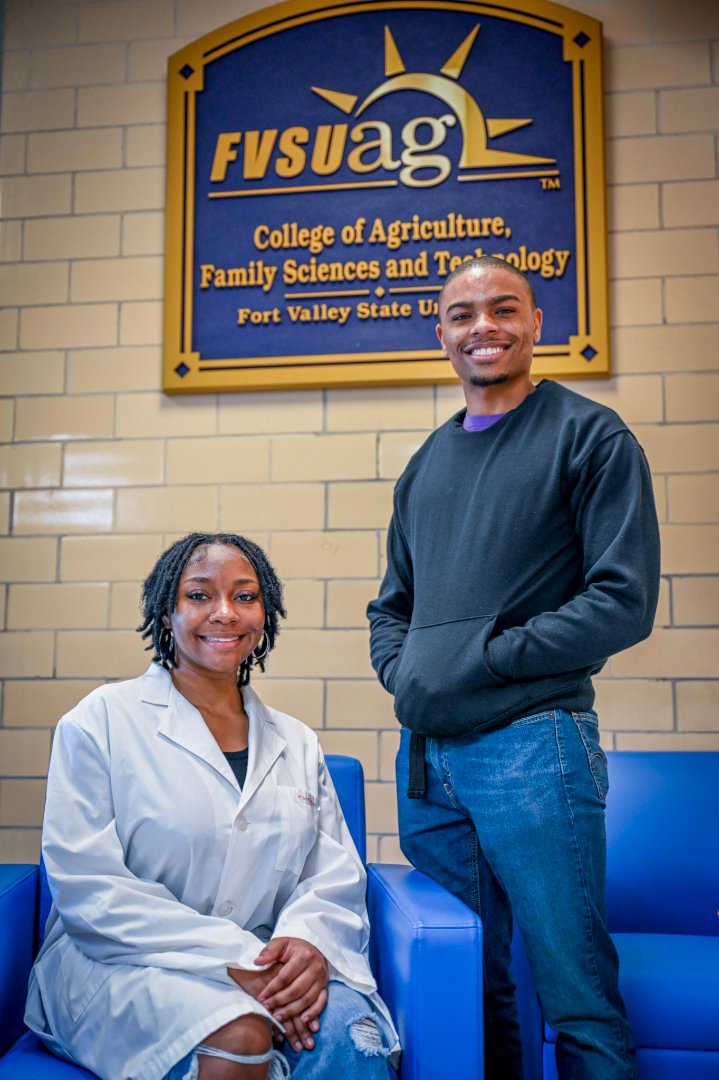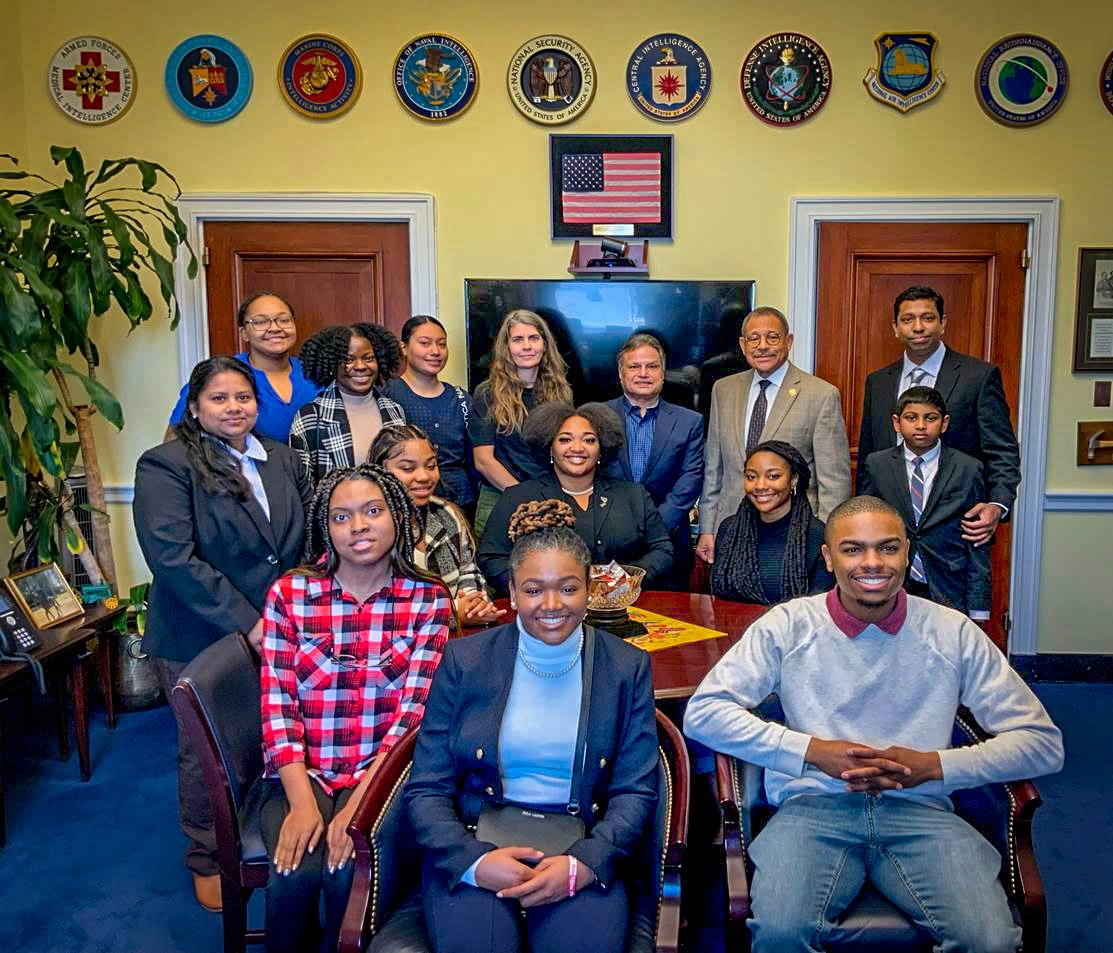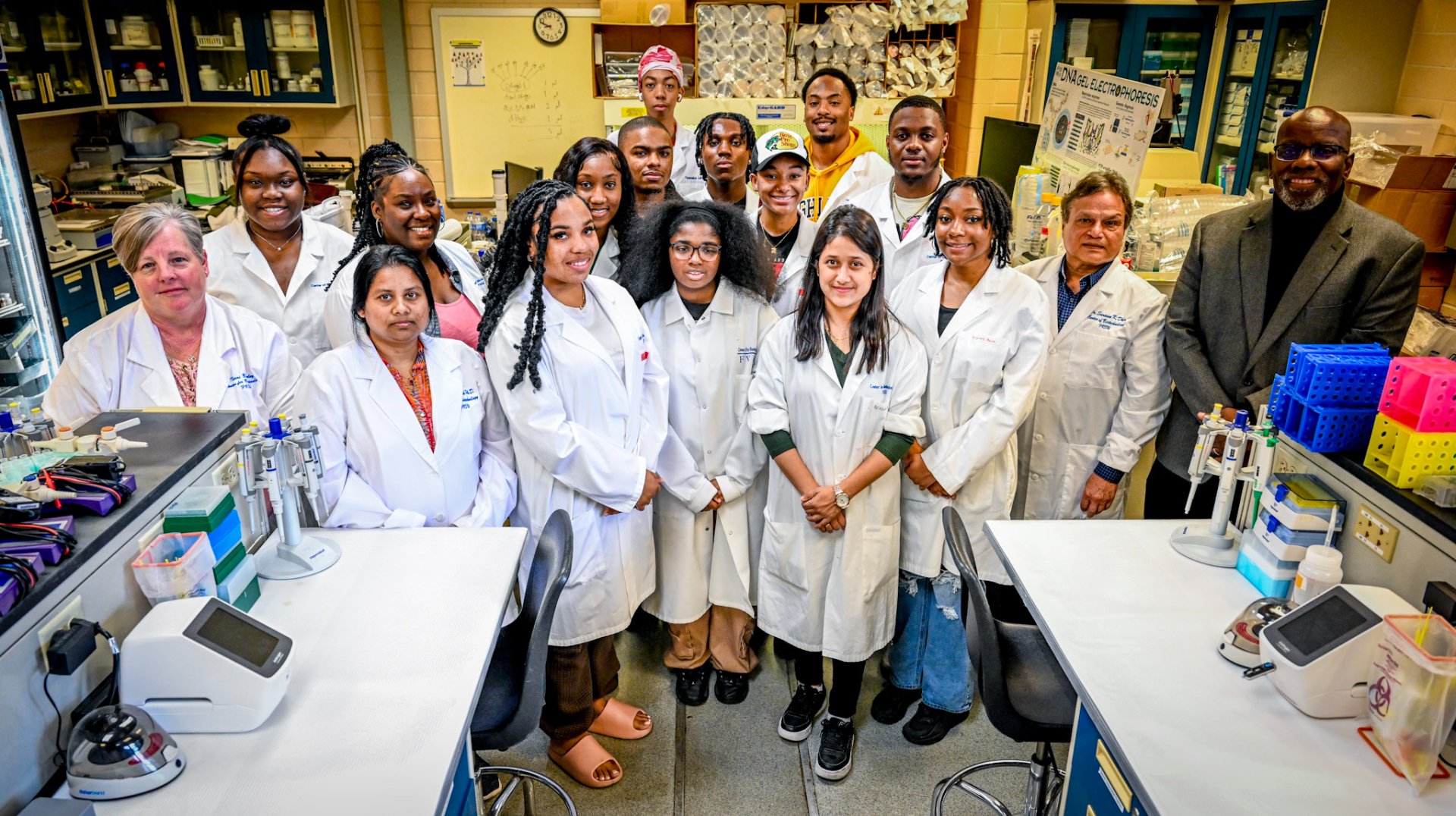Nine Fort Valley State University (FVSU) students recently presented their research at the Emerging Researchers National (ERN) Conference in Science, Technology, Engineering and Mathematics (STEM) in Washington, D.C. The Scholarships in STEM scholars and four faculty members attended the conference, with some students earning awards.
The ERN Conference in STEM aims to help undergraduate and graduate students enhance their science communication skills and to better understand how to prepare for science careers in a global workforce.
Senior Jarred Johnson won first place in the computer science oral presentation. The 25-year-old computer science major said his research focused on an easy-to-use license plate detection model.
“It detects license plates and extracts the characters. My professor and I wanted to gauge its accuracy and efficiency,” he explained.
Johnson examined the model’s use in regular weather elements such as clear daylight and during conditions like fog and at night.
“We found that the model was about 75 percent accurate in detecting a license plate in regular conditions,” he said. “For optical character recognition, it was about 30 percent efficient in extracting characters in regular conditions.”
Johnson said he gained a lot of new knowledge about programming languages. He said his win reaffirms all his hard work finally paying off. He added to be recognized at a conference of that magnitude shows that students who attend FVSU can do anything that the bigger institutions can do.
After graduation, the FVSU Wildcat desires to work in the software industry. He plans to apply for a summer internship to further expand his computer science skills. He also plans to pursue a master’s degree and doctorate to continue his research.
Johnson, who grew up in Iowa and Illinois, said his father introduced him to computers when he was 7 years old. He strayed away from it in high school but realized his passion for computers and working with software when he transferred to FVSU during his sophomore year.
“I decided to give it a shot and have loved it ever since. There are many opportunities at FVSU. You must be open and willing to network and talk to your professors,” he advised.

Another winner, Kamora Payne, took home second place in the poster presentation for biological physiology and health at the conference. The senior plant science-biotechnology major presented her research on investigating the effects of diet on lipid storage. She conducted studies using the fruit fly to evaluate diets that increase starvation resistance.
Comfortable and excited to share her research, Payne expressed that it was an interesting process.
“I found that there is a set point for obesity in species,” she said. “The environment plays a big role and can temporarily change the way your genes are expressed. If you starve yourself, you are going to store more fat because your body is trying to survive.”
While conducting this research, the 21-year-old interned at the University of Nevada in Las Vegas in 2022 for over two months.
“Winning was an eye-opener and reassured me that I am ready for graduate school,” she said. Payne aspires to pursue a doctorate in biomedical science and continue conducting health disparities research.
“My mom is big on organics and natural approaches, which sparked my interest,” she said. “Growing up in South Fulton, Georgia, there was a lack of access to things medically.” This also inspired her desire to open a wellness facility in her hometown.

Dr. Sarwan Dhir, FVSU professor of plant biotechnology and director of multiple National Science Foundation (NSF) STEM programs, said this huge distinction reflects the students’ backgrounds and showcases their commitment to academics and community service.
“They have exhibited scholarly excellence and are extremely involved on campus, making them top role models for others,” he said.
Furthermore, junior Anijha Baker appreciated the opportunity to network at the conference. The 21-year-old plant science-biotechnology major also interned at the University of Maryland Eastern Shore (UMES) in the summer of 2022.
An FVSU 1890 scholar, Baker’s research focused on marine biology, where she experimented with Sambucus nigra extracts. During the 10-week internship, she gathered samples at Ocean Bay City. She worked with the U.S. Navy on finding a nontoxic method to remove bacteria from the bottom of boats.
“We made a paste to put on the bottom. We won’t know if it worked until about five or six years from now. The boat must sit in the water for many years,” she noted.
Baker said this experience taught her more about how things work in the lab. Since working with the U.S. Navy, the Fort Gaines, Georgia, native is interested in serving in the military and becoming a botanist.
FVSU President Dr. Paul Jones commented, “It is always a highlight for me to learn first-hand how our students are engaging in research and other experiential opportunities.”
This opportunity was supported by multimillion-dollar grants from the NSF HBCU-UP (HRD-2011903), S-STEM (DUE-1834046) and the Department of Education MSEIP (P120A2000016) at FVSU.

